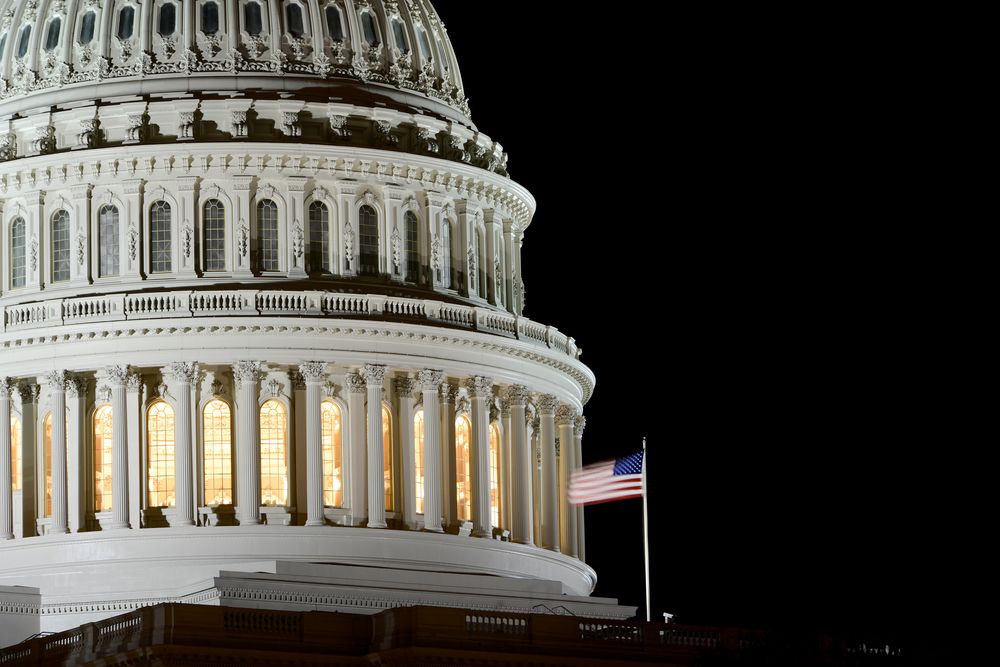2023 Federal budget: The long and short of it
$1.7 trillion spending plan will have effects across health care sector.

Telehealth, physician payment, training more doctors, and pandemic preparedness are among the health care provisions in the federal government’s $1.7 trillion budget for 2023.
At the end of 2022, physicians and medical industry leaders were awaiting various federal actions that would affect health care. Some of those happened with Congress' approvale of the 4,155-page “Consolidated Appropriations Act, 2023,” signed by President Joe Biden on Dec. 29.
There were summaries and responses from medical groups including the American Telemedicine Association (ATA) and ATA Action, the American Academy of Family Physicians, and the American Hospital Association (AHA), which published a 10-page rundown of health care policies and spending.
Telehealth
Lawmakers enacted telehealth flexibilities to deal with the COVID-19 pandemic. Many of those were set to expire 151 after the end of the COVID-19 public health emergency.
Instead, the bill will extend and expand telehealth flexibilities through Dec. 31, 2024. Among those flexibilities:
- Expanding originating sites to include any sites where patients are located, including patient homes.
- Extending coverage and payment for audio-only telehealth services.
“This is a clear demonstration of the very best of our elected officials at work, first enacting flexibilities to allow telehealth services to deliver care to patients remotely during an unprecedented global pandemic,” ATA leader Kyle Zebley said in a news release. Zebley is ATA senior vice president for public policy and executive director of ATA Action.
“Now, as telehealth has proven to be an often lifesaving and widely valued option for millions of Americans, our congressional leaders on both sides of the aisle have taken appropriate action to ensure these services will remain in place for the next two years, while we seek permanent legislation on the state and federal levels,” Zebley said.
The federal spending plan had “several provisions that move our nation closer to our goal of ensuring affordable, equitable and comprehensive care for all,” AAFP President Tochi Iroku-Malize, MD, MPH, FAAFP, said in a published statement. “We applaud the extension of Medicare telehealth flexibilities, including audio-only telehealth, through the end of 2024. This preserves patients’ access to virtual care and offers predictability for physicians.”
Physician reimbursement
Despite that good news, cuts to physician reimbursement threaten health care promises made to senior citizens and will reduce access to timely care for many, Iroku-Malize said.
The Medicare Physician Fee Schedule included a 4.5% cut to take effect this year. That will be reduced to 2% for 2023 and about 3% for 2024, according to AHA.
But any cut is unacceptable, Iroku-Malize said in the AAFP statement.
“Coupled with inflation and rising practice costs, any payment cut puts untenable strain on family medicine and other physician practices,” Iroku-Malize said. “This ultimately worsens beneficiaries’ timely access to care, stalls progress toward value-based care and hastens health care consolidation. Congress must take action to ensure Medicare physician payment policies support comprehensive and continuous primary care, keep pace with increasing practice costs and stop the annual threat of Medicare cuts.
“It is imperative that lawmakers take concrete action on comprehensive Medicare payment reform so patients can access to the quality care they deserve, and physicians have the resources and flexibility they need,” Iroku-Malize said.
Financial implications
AHA noted the spending plan will delay the federal Pay-As-You-Go Act sequester, known as statutory PAYGO, for two years. Without that delay, Medicare would have had a $38 billion cut starting this year.
The federal budget also will extend incentive payments for alternative payment models for an additional year, through calendar year 2025. However, the incentive payments will be at 3.5% instead of 5%.
In a published statement, AHA President Rick Pollack praised Congress for recognizing pressure on hospitals, health systems, and caregivers, but their financial situation is grim.
“This legislation will deliver critical support and resources so we can better care for our patients and create healthier communities,” Pollack said. “Due to skyrocketing cost increases for supplies, equipment, drugs and labor, challenging workforce shortages, and the ‘tripledemic’ of COVID-19, flu, and RSV, the hospital field is stretched thin and on the brink.”
Workforce updates
The federal budget includes 200 Medicare-funded graduate medical education residency positions beginning in 2026. At least half of those will be dedicated to psychiatry and psychiatry subspecialty residencies, with 10% distributed to hospitals in rural areas, those operating above their caps, in states with new medical schools, and those serving health professional shortage areas.
Cybersecurity
Medical device manufacturers will have new requirements for cybersecurity, with some going into effect in 90 days. The U.S. Food and Drug Administration must provide additional resources for device cybersecurity and the Government Accountability Office will have a year to identify how federal agencies can boost cybersecurity in devices.
More to learn
“The legislation takes several steps intended to improve the government’s ability to prepare for emergencies,” with $120.7 billion for the U.S. Department of Health and Human Services and its agencies, according to AHA.
The Senate will be required to confirm the Centers for Disease Control and Prevention (CDC) beginning in 2025, with CDC creating a new agency-wide strategic plan for communications, partnerships, and coordination with other agencies for emergencies.
In his statement on the budget, Biden remarked on finding for the new Advanced Research Projects Agency for Health (ARPA-H) to “advance cutting-edge research on cancer and other diseases.”